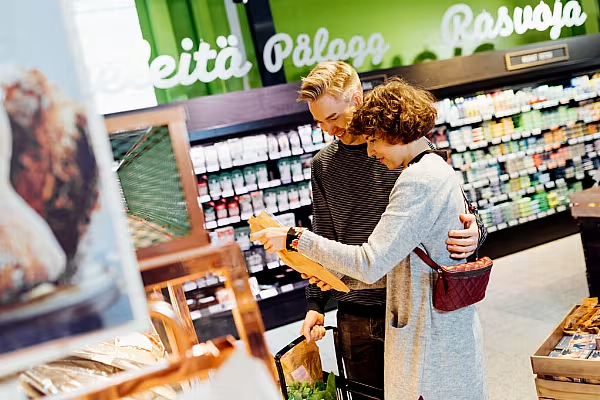As part of our Sustainability 2023 report, ESM caught up with industry leaders across a host of leading retail and consumer goods firms to discuss their ESG achievements to date, efforts made to tackle Scope 3 emissions, and what the current cost-of-living crisis means for sustainability – both for themselves and their consumer base.
Tiina Suvanto, Director, Sustainability And Public Affairs, Kesko
It is true that the rising living costs drive many consumers to carefully examine prices when making purchases, however, we don’t see strong signals that sustainability has become much less important for shoppers, in spite of the current financial situation.
According to our latest research, from earlier this year, 78% of Finnish consumers regard sustainable actions as being important in their everyday life. At the same time, it is clear that when inflation is getting high, sustainable products need to be moderately priced as well.
New Sustainability Strategy
During spring 2022, Kesko updated its sustainability strategy, covering all our operations. All three divisions were strongly involved in the strategy process, and the strategy was created by using a bottom-up approach, to ensure solid commitment throughout the organisation. We believe this is key to ensuring that all our people work towards the same direction.
In fact, the majority of strategy-based sustainability initiatives call for cross-department collaboration and sharing of best practices. One example of this kind of collaboration is our journey towards climate neutrality – we need divisions, businesses, and a range of experts to work with each other in order to reach this goal.
Strong collaboration is a very natural way for us to drive sustainability forward. Moreover, we have set sustainability-related criteria for Kesko’s share-based commitment and incentive plans, in addition to financial indicators.
Collaboration between the business community and governments is essential in order to tackle the biggest challenges facing society. In general, we need more dialogue and good platforms for successful interaction between businesses and decision-makers. For example, businesses and governments should discuss more on practical solutions – how to encourage consumers in more sustainable choices.
Embracing Technology
Technology is an increasingly important element in achieving our ESG targets. One example of technology utilisation is our work towards climate neutrality. For us to reach our climate targets, we need technological innovations such as building automation systems or heat-recycling systems that utilise waste energy.
Another example is using technology as an enabling force for the transition to a circular economy. We want to reduce the amount of plastic contained in the packaging of our own-brand products by 20% by the end of 2025. Reducing the amount of plastic and replacing it with other materials requires collaboration with other operators, through research and technology.
At Kesko, we have defined our own four core focus areas with regard to sustainability, however, when times are hard and the world is in turbulence, it is extremely important for businesses to ensure both the well-being of their own people, as well as social responsibility in the supply chain. Sustainability needs to be integrated all over, and we need everyone to get involved.
This article first appeared in ESM’s November/December 2022 edition.
© 2022 European Supermarket Magazine – your source for the latest retail news. Article by Stephen Wynne-Jones. Click subscribe to sign up to ESM: European Supermarket Magazine.














